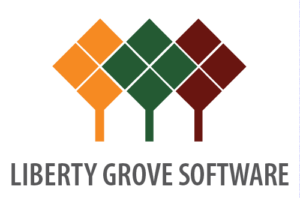Navigating Regulatory Compliance: Why Food Industry Executives Need to Act Now
The Food and Drug Administration (FDA) may have announced its intention to extend the compliance date for Food Traceability Rule under (the “final rule”) its Food Safety Modernization Act (FSMA) by 30 months, but the urgency for companies to begin preparations remains critical.
At the core of this rule is a requirement for companies to maintain digital records detailing the journey of high-risk products from origin to consumer and rapidly produce comprehensive electronic traceability information within 24 hours upon regulatory request. FSMA Section 204 establishes rigorous requirements for the electronic traceability of certain high-risk foods such as leafy greens, dairy products, seafood, and other fresh commodities. Companies must be able to digitally trace these products from source to consumer, producing comprehensive traceability records promptly: within just 24 hours upon regulatory demand. Failure to comply poses significant risks, including operational disruptions, costly fines, severe reputational damage, and potential loss of critical retail partnerships.
Understanding these changes – and preparing now – remains essential for ensuring smooth compliance and maintaining competitive advantage.
A Strategic Regulatory Overview
In the United States, food manufacturing regulations are primarily enforced by two agencies: the FDA and the U.S. Department of Agriculture (USDA). While the USDA oversees meat, poultry, and egg products, the FDA is responsible for approximately 80% of the food supply, including produce, dairy, packaged foods, and seafood.
The FSMA represents a significant shift from reactive to preventive compliance, requiring food manufacturers to proactively identify and mitigate potential hazards throughout the production process. Recent regulatory updates, such as the inclusion of sesame as a mandatory labeled allergen, illustrate the increasing complexity and evolving nature of compliance requirements.
Risks of Delayed Compliance Preparation
Executives tempted to delay preparations until closer to the deadline may underestimate the complexity involved in transitioning from legacy systems to digital traceability. Companies relying on manual methods – such as paper documentation, spreadsheets, or disconnected databases – face considerable operational risks. Fragmented systems not only slow down data retrieval but also increase the likelihood of human error, raising the stakes significantly during regulatory inspections. Delaying this transition can lead to last-minute bottlenecks, compliance gaps, and unnecessary operational stress, all of which could lead to costly repercussions.
Strategic Advantages of Early Implementation
Companies that act early by implementing integrated Enterprise Resource Planning (ERP) solutions gain substantial strategic advantages. These benefits extend far beyond mere compliance, offering:
Enhanced Operational Efficiency
ERP systems provide a centralized digital platform, drastically reducing paperwork and manual data entry. This unified approach streamlines audit processes, expedites data retrieval, and reduces administrative overhead, freeing up resources for other critical business functions.
Improved Traceability and Recall Readiness
Advanced ERP platforms allow real-time lot-level tracking from suppliers to end customers, significantly improving recall effectiveness. With instantaneous traceability, companies can limit the scope of recalls, mitigate risk quickly, and maintain consumer trust.
Proactive Risk Management
Digital traceability systems include automated alerts for potential compliance breaches, such as missing documentation or unverified suppliers. Automated checks within ERP systems ensure critical compliance steps are not overlooked, effectively embedding regulatory adherence within daily operations.
Staff Training and Change Management
Adopting digital solutions early provides ample time for staff to adjust to new processes, ensuring smooth transitions and minimal disruptions. Early training also ensures employees are proficient in managing digital systems, reducing error rates and enhancing overall compliance effectiveness.
Building Customer Confidence
Companies demonstrating proactive compliance capabilities reinforce trust among customers and partners. Retailers and consumers increasingly demand transparency regarding food safety, sustainability, and ethical sourcing. Robust ERP-driven traceability provides verifiable proof of these commitments, enhancing brand reputation and market differentiation.
Embracing Future-Proof Technologies
Preparing for the Food Traceability Rule presents an ideal opportunity to future-proof your organization. Beyond FSMA compliance, ERP systems can seamlessly integrate with emerging technologies such as Internet of Things (IoT), artificial intelligence (AI), and blockchain. These technologies offer powerful tools for ongoing compliance, advanced analytics, real-time monitoring, and enhanced supply chain transparency.
IoT devices, for instance, can continuously monitor critical control points, alerting staff to deviations instantly. AI-driven analytics can predict potential compliance issues before they escalate, allowing proactive interventions. Blockchain technology can create immutable, transparent records, enhancing trust and traceability throughout the supply chain. Investing in these technologies today prepares businesses not only for Food Traceability rule compliance but also positions them advantageously for future regulatory evolutions.
Turning Compliance into Competitive Advantage
Compliance should be viewed not merely as a regulatory requirement but as a strategic opportunity. Companies that proactively adapt and integrate advanced ERP solutions are better positioned to navigate regulatory complexities, mitigate risks effectively, and gain a competitive advantage in an increasingly demanding marketplace.
Organizations leveraging technology to ensure compliance can streamline operations, improve efficiency, and enhance decision-making capabilities. This proactive approach allows companies to focus on innovation, product quality, and customer satisfaction, rather than constantly reacting to regulatory pressures.
Act Now for Long-Term Success
The potential compliance date extension offers an opportunity rather than an excuse for delay. Acting now ensures your organization is well-prepared, operationally resilient, and strategically advantaged in the food and beverage industry. At DynamicsFoodERP, our ERP solutions are specifically tailored to meet the unique challenges of food manufacturing compliance. By integrating proactive compliance management into everyday operations, DynamicsFoodERP enables businesses to confidently meet regulatory demands while pursuing sustainable growth and innovation.
Don’t let the impending regulatory changes catch your organization off-guard. Connect with us today to learn how our ERP solutions can streamline your compliance journey and secure your long-term competitive advantage.

